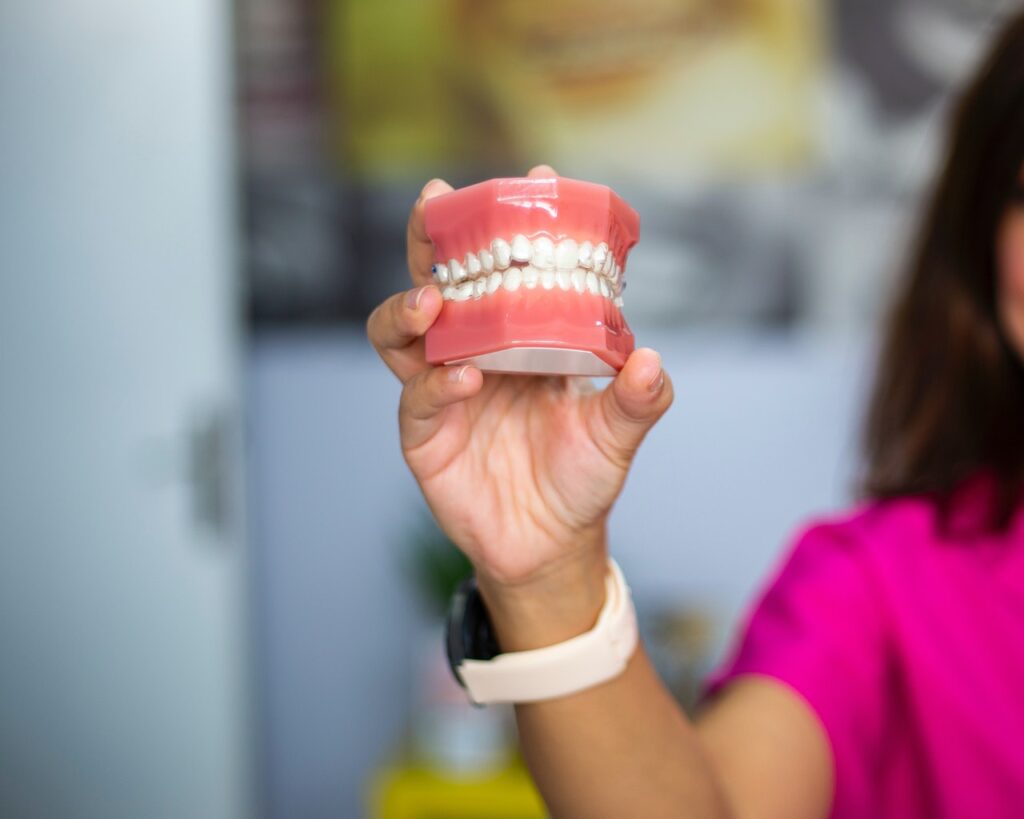Taking care of our smiles plays a huge role in our confidence levels, how we perceive ourselves and even how others view us. Because of this, most of us dream of having perfect pearly whites and would go to great lengths to achieve this.
Two popular options for correcting minor (and even some severe) dental issues include veneers and dentures. But what’s the difference between the two and how can they be beneficial? This article will break down the basics for you.
Dentures
To cut a long story short, dentures are false teeth to replace missing ones – you could either have a full set of complete dentures or partial dentures to replace one or two teeth. Whether the dentures are complete or partial, they’re completely removable.
There are different types of dentures, too. You could get implant retained dentures or snap-in dentures, each of which have different pros and cons. If you’re considering dentures, you’ll need to discuss these options with your dentist.
Benefits
As we mentioned, dentures are easy to slip in and out of your mouth, making them comfortable and easy to use. They can be removed before bed for comfort and easy sleep – although this may be considered an irritation to some.
Your dentures will be designed to fit your mouth comfortably, look natural and can last an extremely long time if properly taken care of.
Disadvantages
While dentures can last many years, they take a lot of time and effort to maintain. Failure to maintain and keep your dentures clean can result not only in them degrading quicker, but this could lead to infection too.
Veneers
Veneers are a good option for someone who has teeth that are stained, chipped or have gaps, rather than teeth that are missing altogether.
This option involves a thin covering that can be placed over your existing teeth, usually made from porcelain or resin. There are also different types of veneers that have different pros and cons and will need to be discussed with an oral specialist.
Benefits
Veneers, like dentures, can last a long time with proper care. They’re strong and won’t stain in the way your natural teeth might, making them a great option for those who struggle with teeth stained by smoking, wine or other factors.
The coverings are also natural-looking and completely safe to use. Unlike dentures, these coverings are not removable and will stay on your teeth unless removed or replaced with a procedure.
Disadvantages
While veneers can be life-changing for those with minor dental issues, they can be quite expensive. This option will require a procedure that might be considered uncomfortable or invasive, and will further involve intermittent maintenance in the form of professional polishing.
The Takeaway
Overall, dentures and veneers serve quite different purposes despite both being categorised as cosmetic dental treatments.
If you have missing or extremely damaged teeth, you’ll want to speak to a dentist about your options for dentures. However, if your teeth are still intact but have stains or chips, you can look into veneers instead.

